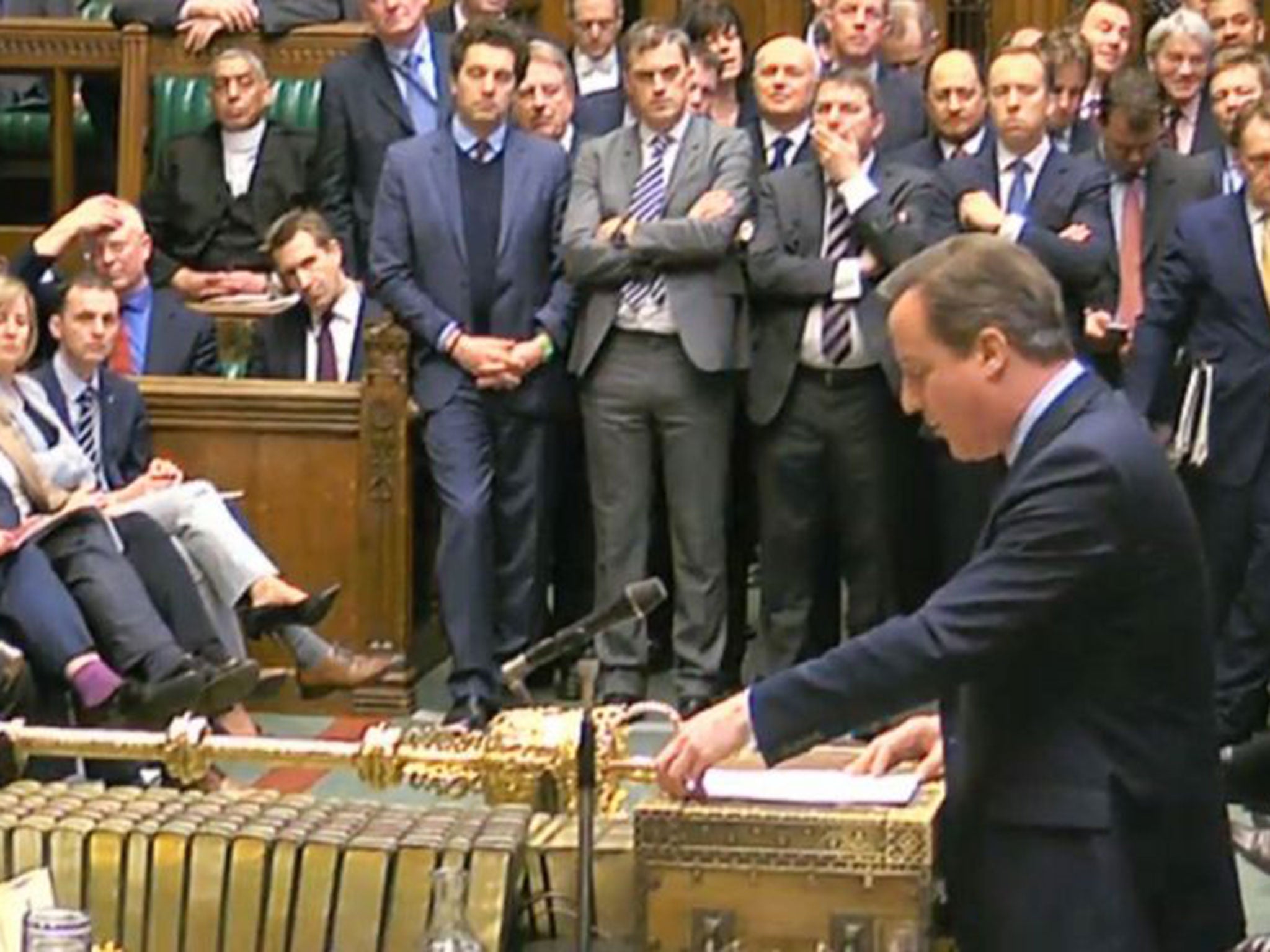EU referendum: Tories back away from David Cameron in Europe row
A majority of Tory speakers argued that Mr Cameron's agreement did little to return powers to the UK

Conservative MPs lined up in the Commons to put themselves in the opposite camp from the leader in the four-month battle over Britain’s membership of the European Union.
As the Prime Minister insisted his deal in Brussels would mark a new relationship with the EU, a majority of Tory speakers argued that his agreement did little to return powers to the UK and signalled their determination to campaign for Brexit.
It was left to senior Labour, Liberal Democrat and SNP figures to argue that it was in Britain’s interests to remain in the 28-nation bloc – although they could not resist accusing Mr Cameron of putting the country’s future at risk because of Tory divisions on Europe.
The Eurosceptic assault on the Prime Minister was led by the Mayor of London, Boris Johnson, who challenged him to “explain to the House and to the country in exactly what way this deal returns sovereignty over any field of law-making to these Houses of Parliament”.
Mr Cameron responded: “This deal brings back some welfare powers, it brings back some immigration powers, it brings back some bail-out powers, but more than that, because it carves us forever out of ever-closer union, it means that the ratchet of the European court taking power away from this country cannot happen in future.” The veteran Tory, Sir Bill Cash, told him that laws affecting the UK were made by other countries, introduced by the European Commission and enforced by the European Court of Justice. “The only way to get out of that and return our democracy is to leave the European Union,” he said.
Jacob Rees-Mogg, the North East Somerset MP, gently mocked the Prime Minister for spending 40 hours in Brussels, getting through four clean shirts and a packet of Haribo sweets, implementing the promises on Europe set out in the Labour manifesto.
He said: “Is the government’s policy basically [to] always keep a hold of nurse, for fear of finding something worse?”
David Davis, the former Europe Minister, challenged the Prime Minister over how much plans for curbs on EU nationals receiving in-work benefits would reduce immigration.
Mr Cameron did not answer directly, but said the prospect of being entitled to up to £10,000 in benefits was a “big incentive to come to Britain”.
The former Cabinet minister, Peter Lilley, said that over the past two decades, Britain has voted against 72 measures in the European Council and been defeated 72 times. He said: “The pace of defeat is accelerating. If we make the mistake and take the risk of remaining in the EU, how many defeats do you expect in the next two decades?”
Kenneth Clarke, the former Chancellor, provided a rare Tory voice of support, saying: “Future generations will benefit from some of those concessions, particularly those on enlarging the single market, guaranteeing our access to parts of it, deregulating and engaging in major trade deals with outside.”
Nick Clegg, the former Deputy Prime Minister, said: “This referendum is about the future of our country, it’s not about the future of a divided Conservative party.”
He said: “If Britain in the future wants to stand tall in New Delhi, in Beijing, in Washington, in other global capitals, Britain must continue to stand tall in our own European neighbourhood.”
Mr Cameron responded that the only person who might want the UK to leave the EU is Vladimir Putin.
Ed Miliband, the former Labour leader, said that on all the major issues – such as trade, climate change, terrorism and security – Britain had more influence inside the bloc than outside it.
The Prime Minister said: “The big picture is this – when it comes to getting things done in the world that can help keep people safe in our country, a bigger, better deal on climate change, do we get more because we are in the EU? Yes.”
Jeremy Corbyn, the Labour leader, said his party overwhelmingly supported EU membership because it provided jobs and protection for workers, investment and action on the environment. He dismissed the Prime Minister’s deal as “largely irrelevant” and said it would have no impact on the case to remain in the EU.
What has the EU ever done for us?
Show all 7Angus Robertson, the SNP’s leader at Westminster, said he was certain that Scots would demand a fresh independence referendum if the UK was forced out of the EU against the will of Scotland.
He also warned against using so-called “project fear” tactics, which the SNP claims were used against it in the 2014 independence referendum.
Mr Cameron insisted he would make a positive case for remaining in the EU and insisted the vote was one for the whole of the UK.
Subscribe to Independent Premium to bookmark this article
Want to bookmark your favourite articles and stories to read or reference later? Start your Independent Premium subscription today.

Join our commenting forum
Join thought-provoking conversations, follow other Independent readers and see their replies